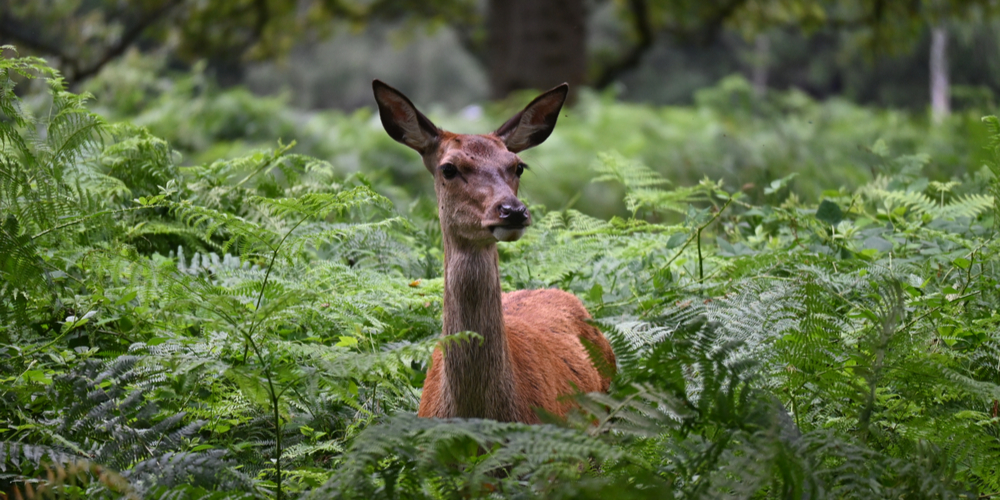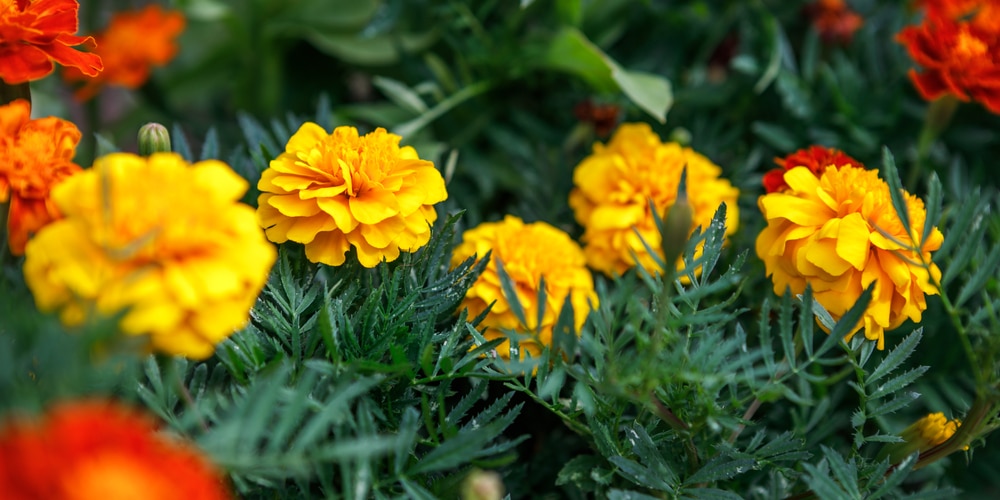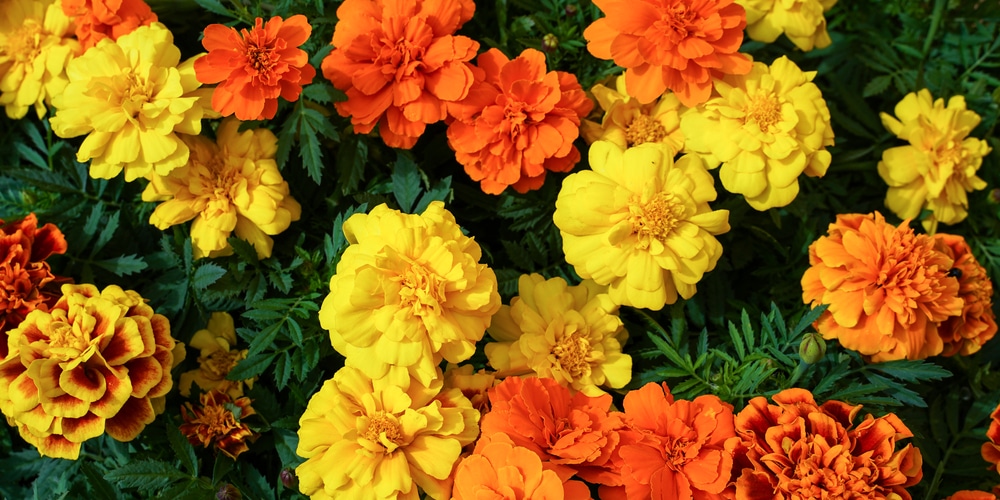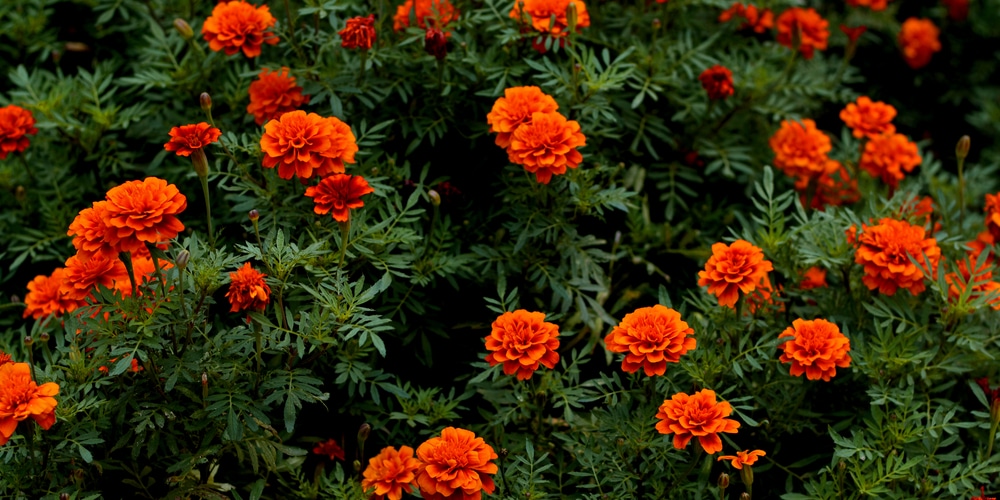We often hear that deer are attracted to lawns and yards, but we don’t always know what they’re eating. Marigolds are a common flower and one that many of us may have on our lawns.
If you’re just getting started with gardening, you may be wondering: do deer eat marigolds? Read on since this article will give you an answer to this question and more.
So, Do Deer Eat Marigolds?
The simple answer is that deer are not typically fond of eating marigolds. These plants are a complete turnoff for deer, thanks to their strong, pungent smell.
However, there are some marigolds, specifically the signet marigolds, that have a more enticing, citrusy smell and flavor that deer may be attracted to. In addition to that, it’s good to keep in mind that deer can eat just about any variety of marigolds if they are hungry enough.
Why Are Most Marigolds Deer-Resistant?
As we mentioned, the main reason why deer don’t eat marigolds is because of their intense smell. If you’ve smelled marigold plants before, you know that they can be quite overwhelming.
Now, considering that deer have a sense of smell that is about 50 times more sensitive than ours, it’s no wonder they stay away from these plants!
The other factor that makes marigolds deer-resistant is their lace-like leaves. Deer prefer to eat plants that have foliage with a smoother texture. With two deal breakers in the mix, it’s really no surprise that deer wouldn’t want to go near marigolds, given the chance.
Are Marigolds Entirely Deer Proof?
When it comes to plants that are entirely deer-proof, marigolds come pretty close. As we’ve mentioned, the main exception to this rule is signet marigolds, which have a more appealing smell to deer.
Other than that, you can rest assured knowing that deer are unlikely to bother your marigold plants. If you’re looking for a deer-resistant option for your lawn or yard, marigolds are definitely worth considering.
Are marigolds both deer repellent and deer resistant?
To give the verdict, it’s important to understand the difference between deer repellent and deer resistance.
Deer resistance means that a plant is less likely to be eaten by deer. This doesn’t mean that the plant is completely deer-proof, but rather that deer are less likely to bother with it.
On the other hand, deer repellent means that the plant is repugnant to the deer, deterring them from eating it.
With that in mind, it is safe to say that marigolds are a blend of both. They are deer resistant because the deer find them unappealing, but they are also deer repellent because of their intense smell.
What Marigold Varieties Are Deer Resistant?
There are many different types of marigolds, but not all of them are deer resistant. If you’re looking for a deer-resistant marigold for your lawn, here are some of the best options.
1. French Marigold (Tagetes patula)
This marigold variety is one of the best to plant if you are worried about deer invading your lawn. It has a number of features that make it unappealing to deer, including its significantly thinly segmented leaves.
Considering the small size of this marigold, it is ideal for protecting other plants like lettuce from deer. And given that it thrives in USDA hardiness zones 2 through 11, you can find this plant virtually anywhere.
2. Mayan Marigold (Tagetes parryi)
This type of marigold is another excellent deer-resistant option. Most common in pastures, the Mayan marigold is known for its beautiful yellow flowers that blossom in the summer and fall.
And while this variety of marigolds is quite difficult to find, it’s definitely worth the search if you’re looking for a deer-resistant plant. It’s also a little bit limited when it comes to USDA hardiness zones, given that it thrives best in zones 8-11.
3. African Marigold (Tagetes erecta)
This marigold is also a perfect choice if you’re looking for a deer-resistant plant. It’s easily recognizable due to its large, showy flowers that can grow up to 4 inches across. The African marigold is also known for its strong, pungent smell, which is one of the qualities that deter deer.
As if that is not enough, it has leaves that are heavily segmented into leaflets. This quality, in addition to its smell, is what makes it so unappealing to deer. And like the French marigold, this plant is also quite versatile and will grow well in USDA hardiness zones 2-11.
4. Sweetscent Marigold (Tagetes lucida)
This type of marigold is yet another excellent deer-resistant option. The smell that it produces is anything but sweet if you were to ask a deer. The intense anise aroma that this plant produces is mainly attributed to the fact that it is a medicinal variety.
This plant thrives best in USDA zones 8-11, and it’s easily recognizable by its small, yellow, wild-looking flowers.
To conclude,
If you’re looking for a deer-resistant plant, any of the marigold varieties listed above would be a great choice. All of these plants are known for their intense smell, which is one of the main qualities that deter deer.
And while they may not be completely deer-proof, they are definitely less likely to be eaten by deer. So if you’re looking to keep your lawn or yard safe from deer, consider marigolds – the majority are deer-resistant!



